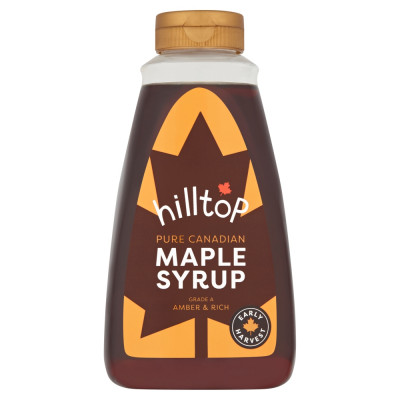
Monthly Offers
Sign up for exclusive offersYour Favourite Brands
View All BrandsRead Our Blog
For The Latest Recipes & MoreFree Delivery
On Orders Over £55Monthly Offers
Sign up for exclusive offersYour Favourite Brands
View All BrandsRead Our Blog
For The Latest Recipes & MoreFree Delivery
On Orders Over £55Syrups have been delighting our taste buds for centuries. These viscous, sweet concoctions have found their way into various aspects of culinary culture across the globe. From enhancing the flavours of your favourite dishes to serving as a natural remedy, syrups have a rich history and an array of uses that make them an indispensable part of our gastronomic experience.
The origins of syrup can be traced back to ancient civilisations such as the Egyptians, Greeks, and Romans. In these societies, syrup was commonly made from fruits, honey, and even flowers to create sweet beverages and medicines. Over time, syrups have evolved to include an extensive range of flavours and consistencies, becoming an integral part of many culinary traditions.
In Britain, golden syrup, a by-product of sugar refining, holds a special place in the nation's heart. Invented in the 19th century by chemist and businessman Sir Henry Tate, golden syrup is a versatile ingredient in British cuisine. It's a key component in treacle tarts, flapjacks, and sticky toffee puddings, among other beloved dishes. The iconic green-and-gold Lyle's Golden Syrup tin has become synonymous with home baking and a staple in many British kitchens.
Maple syrup, another well-known syrup variety, hails from North America, where indigenous peoples have been tapping maple trees to collect sap for centuries. This sap is boiled down to create the thick, amber-coloured syrup that has become a breakfast classic. Drizzled over pancakes, waffles, or porridge, maple syrup's distinct flavour has won over the palates of people worldwide.
Apart from these popular varieties, syrups are made from a multitude of sources, such as fruits, herbs, and even flowers. Elderflower cordial, a syrup made from the fragrant blossoms of the elder tree, is a quintessentially British beverage enjoyed in the summertime. Meanwhile, grenadine, a pomegranate-based syrup, adds a fruity touch to a wide range of cocktails.
Syrups also play an essential role in the world of confectionery. The art of creating exquisite sweets often involves the use of sugar syrups to achieve the desired textures and flavours. In the British classic, bonfire toffee, sugar and golden syrup are heated to high temperatures to create a brittle, glass-like treat that is a popular indulgence during Guy Fawkes Night celebrations.
Despite the widespread use of syrups in the culinary world, their applications extend beyond the kitchen. For instance, glycerin syrup, a by-product of soap manufacturing, is a common ingredient in cosmetics and pharmaceuticals. It is renowned for its moisturising properties and ability to create a protective barrier on the skin.
In addition to their diverse applications, syrups have also been associated with various health benefits. Honey, for example, has been used as a natural remedy for centuries due to its antibacterial and anti-inflammatory properties. Similarly, elderberry syrup is believed to help support the immune system and alleviate symptoms of colds and flu.
In conclusion, syrups are an extraordinary aspect of human culinary heritage. They have been a part of our history for thousands of years, playing essential roles in both the kitchen and the medicine cabinet. Whether drizzled on your favourite dessert or mixed into a soothing hot drink, syrups continue to be a versatile, delicious, and fascinating part of our gastronomic experience. From the ancient Egyptians to modern-day Britons, the allure of syrups remains as strong as ever, proving that their appeal is truly timeless.